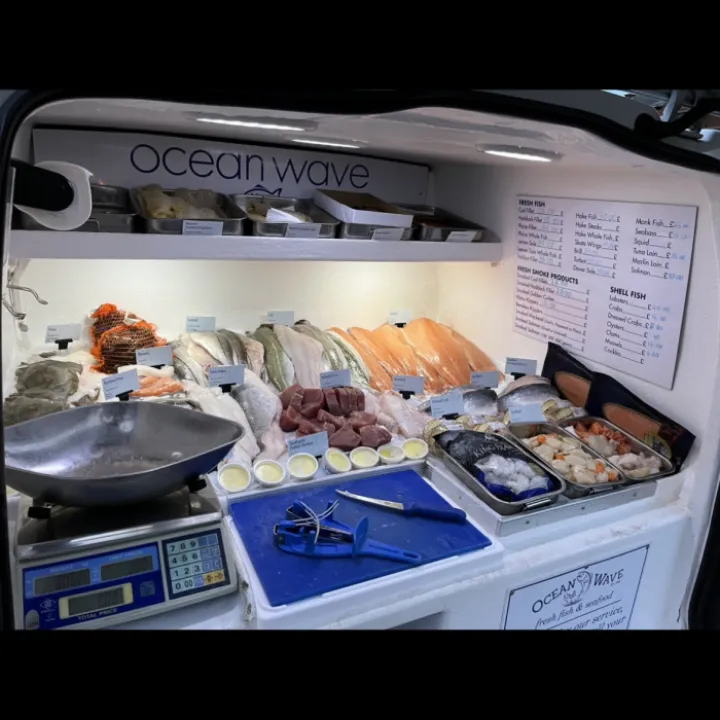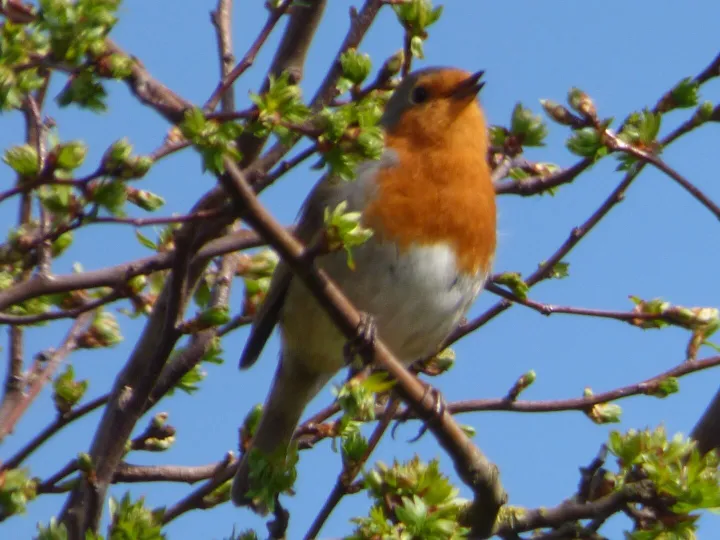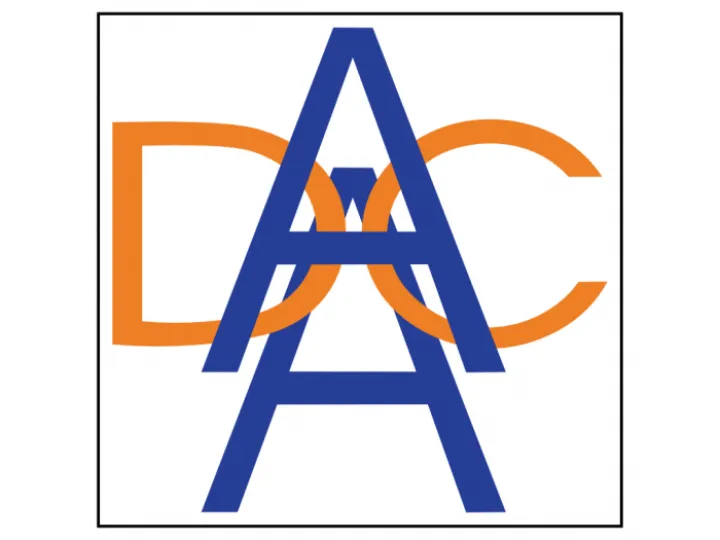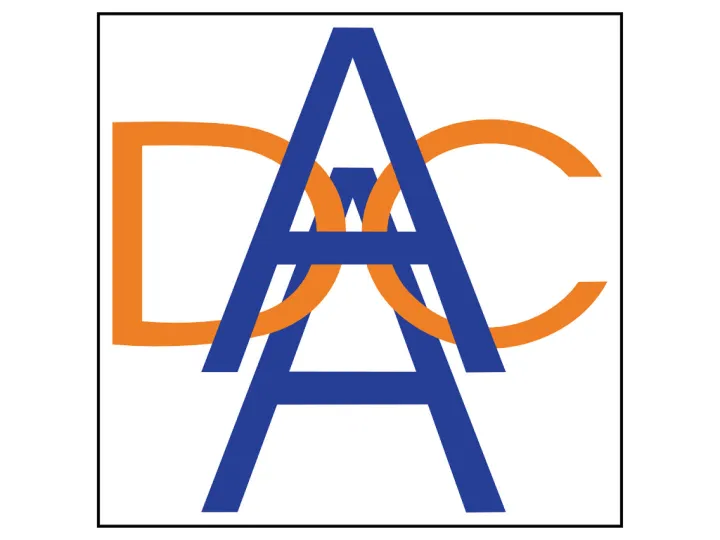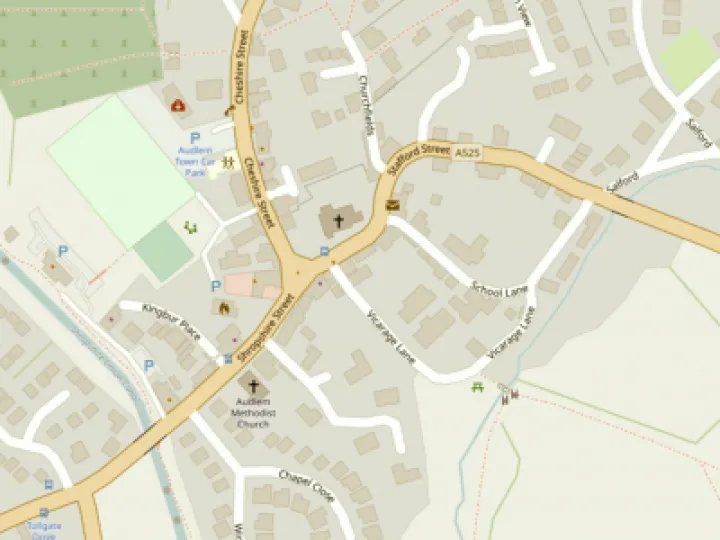Cody knew my great uncle
[Audlem and District History Society
History Shorts 61 by Judi Paterson]
There were two famous Codys, both born in America. The first was Buffalo Bill, known for his Wild West shows. The second, Samuel Franklin, was actually born with the surname Cowdery, but changed it to Cody because he admired Buffalo Bill. He was born in 1867. Like the man he admired, he toured the UK and Europe with a Wild West show. He and his family performed in music halls.
It's not clear when Cody decided to stay in the UK. He already had a passion for kites and became involved in their design and construction at the Balloon School in Farnborough. Having realised that balloons had a limited purpose, he designed man-lifting kites and became the first person to fly in Britain.
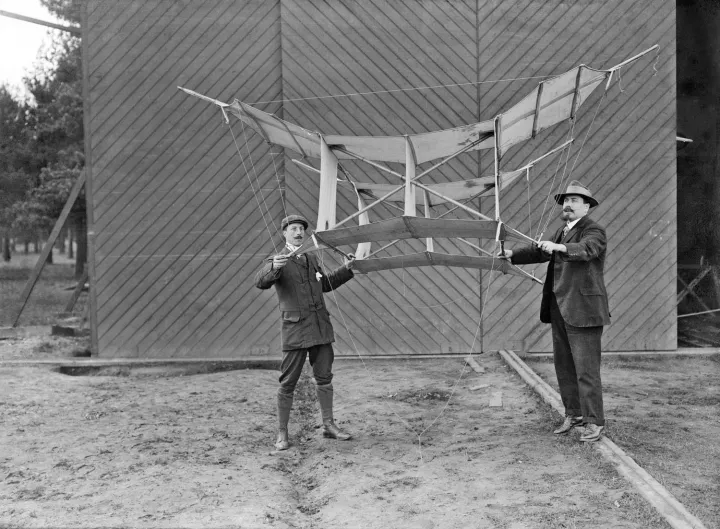
After learning how to fly he made and piloted the first powered aircraft, flying for 27 minutes in October 1908. Cody was often seen flying over the Surrey and Hampshire countryside in the ensuing years.
On 7th August 1913, he was test-flying his latest invention, the Cody Floatplane. The plane broke up at 200ft. Cody and his passenger were thrown out of the plane and killed. Cody was buried with full military honours before a crowd of 100,000 mourners.
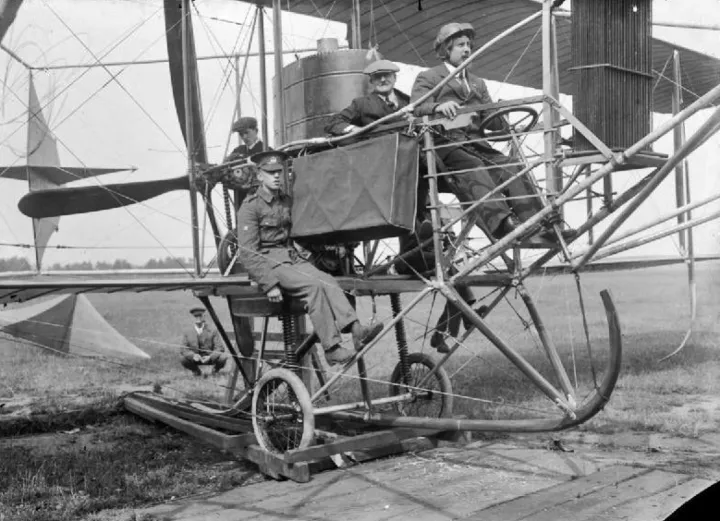
In a previous History Short, I described how my three great aunts were employed at the Balloon Factory. Aged 14, one of their brothers was taken by their father to meet Colonel Templar, Superintendent of the Factory. Percival Edward Crosson, my great uncle, became the first apprentice on 28th September 1896. He earned 3/- (15p) a week working with Bill Cody as he developed the man-elevating kites and the powered aircraft in which Cody made his first flight. It would be nice to think that Percy, as he was known, was the un-named mechanic mentioned in the caption to the photo above.
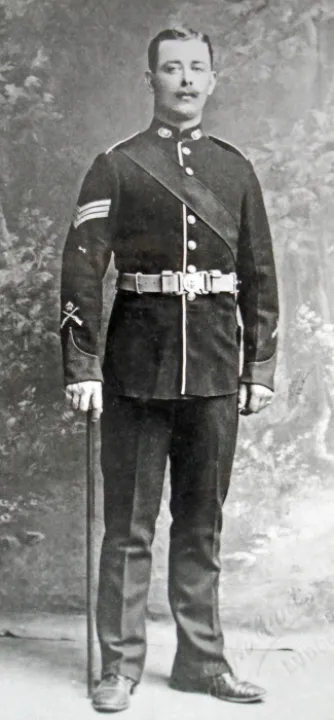
Percy became a fitter and turner and by 1917 was Shops Superintendent, a post he held until he retired in 1950. By then the factory had been renamed the Royal Aircraft Establishment (RAE). Because his work was so important, he was refused permission to join the Royal Flying Corps during WW1. However, he did serve for twelve years in the Territorials, reaching the rank of sergeant, and later served as Regimental Sergeant Major to the Hampshire Cadets. He died in 1973. His obituary stated that "he made an important contribution to the establishment of the aircraft industry, and was awarded the British Empire Medal."
When my grandparents moved to Bristol, they lost touch with most of the family who remained in the Aldershot area. However, that was not the last family contact with the RAE. Ninety years after Percy became the first apprentice, my niece enrolled as the first female Craft Apprentice. One of her tasks was to make accurate wooden models of the planes of the future to be tested in a wind tunnel. Percy would have been thrilled to know that his great, great niece was continuing the work started by him and Cody so many years before.
Get In Touch
AudlemOnline is powered by our active community.
Please send us your news and views using the button below:
Email: editor@audlem.org





